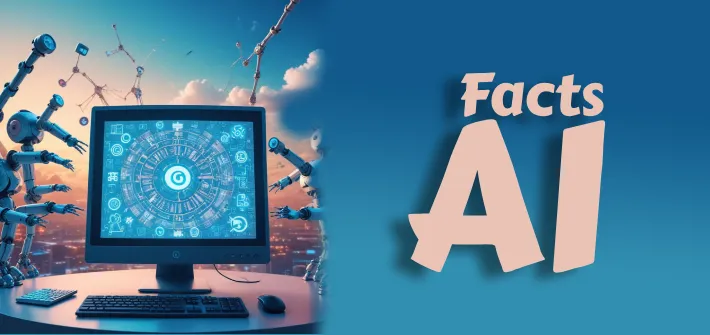Artificial Intelligence (AI) has become an integral part of our daily lives, influencing everything from how we work to how we interact with technology. The rapid advancement of AI technology has brought about numerous breakthroughs and continues to shape the future. In this article, we will explore some surprising facts about computers and artificial intelligence, highlighting their history, current impact, and future potential. We’ll delve into AI technology advancements, the history of artificial intelligence, AI in everyday life, and more.
Facts About Computers : History of Artificial Intelligence
Artificial intelligence, as a concept, dates back to ancient times when philosophers and inventors dreamed of creating machines that could mimic human intelligence. However, the formal field of AI research began in the mid-20th century.
Early Milestones
The term “artificial intelligence” was coined by John McCarthy in 1956 during the Dartmouth Conference, which is considered the birth of AI as an academic discipline. Early AI research focused on symbolic methods and problem-solving. In 1951, Christopher Strachey wrote the first AI program, which ran on the Ferranti Mark 1 computer at the University of Manchester. This program played a complete game of checkers, marking the beginning of AI’s practical applications.
Evolution of AI
Over the decades, AI has evolved significantly. The 1980s saw the rise of expert systems designed to mimic the decision-making abilities of human experts. By the 1990s, AI research shifted towards machine learning, a subfield that enables computers to learn from data and improve over time. This period also witnessed the development of neural networks, which are modeled after the human brain and play a crucial role in modern AI.
AI Technology Advancements
AI technology has advanced at an unprecedented rate, leading to breakthroughs that have transformed various industries.
Machine Learning and Deep Learning
Machine learning, a core component of AI, involves training algorithms to make predictions or decisions based on data. One of the most significant advancements in this field is deep learning, which uses neural networks with many layers to process and analyze complex data. Deep learning has enabled significant progress in areas such as image and speech recognition, natural language processing, and autonomous vehicles.

Surprising Facts About Computers Artificial Intelligence
AI’s Impact on Society
The impact of AI on society is profound and multifaceted. While it offers numerous benefits, it also raises ethical and societal concerns.
Job Displacement and Creation
One of the most debated topics is the potential for AI to displace jobs. According to a report by the World Economic Forum, AI and automation could displace 85 million jobs by 2025. However, it could also create 97 million new jobs in fields such as AI development, data analysis, and digital marketing. The key challenge lies in ensuring that the workforce is equipped with the necessary skills to transition to these new roles.
Ethical Considerations
AI also poses ethical challenges, including bias in algorithms, privacy concerns, and the potential for AI to be used in malicious ways. Ensuring that AI is developed and deployed responsibly is crucial to mitigating these risks. Organizations and researchers are working on creating ethical guidelines and frameworks to address these issues.
Machine Learning Breakthroughs
Machine learning has achieved several remarkable breakthroughs, some of which may surprise you.
AlphaGo’s Historic Win
In 2016, Google’s DeepMind developed AlphaGo, an AI program that defeated the world champion Go player, Lee Sedol. Go is a highly complex board game with more possible moves than there are atoms in the universe, making this victory a significant milestone in AI research. AlphaGo’s success demonstrated the potential of deep learning and reinforcement learning techniques.
Art and Creativity
AI is not just limited to technical applications; it has also made strides in the creative arts. AI algorithms can now compose music, create visual art, and even write poetry. For instance, OpenAI’s GPT-3, a state-of-the-art language model, can generate coherent and creative text, showcasing the potential for AI to augment human creativity.
The Future of Artificial Intelligence
The future of artificial intelligence is both exciting and uncertain. As AI technology continues to advance, it will likely bring about significant changes in various domains.
AI and Healthcare
AI has the potential to revolutionize healthcare by enabling early disease detection, personalized treatment plans, and efficient drug discovery. Machine learning algorithms can analyze medical images, predict patient outcomes, and assist in diagnosing conditions. The integration of AI in healthcare promises to improve patient care and reduce costs.
AI and Autonomous Systems
Autonomous systems, such as self-driving cars and drones, are another area where AI is expected to make significant strides. Companies like Tesla, Waymo, and Uber are investing heavily in developing autonomous vehicles that could transform transportation and logistics. While challenges such as safety, regulation, and public acceptance remain, the potential benefits of autonomous systems are substantial.
Conclusion: Embracing the AI Revolution
In conclusion, the field of artificial intelligence is filled with surprising facts and remarkable advancements. From its early beginnings to its current impact on society, AI continues to evolve and shape the future. Understanding the history of artificial intelligence, AI technology advancements, and its applications in everyday life helps us appreciate its significance.
As we look ahead, the future of artificial intelligence holds immense potential. However, it is essential to address the ethical and societal challenges that accompany this technological revolution. By embracing responsible AI development and equipping ourselves with the necessary skills, we can harness the power of AI to create a better and more inclusive future.
Whether it’s through machine learning breakthroughs, AI’s impact on healthcare, or the integration of AI in our daily lives, the journey of artificial intelligence is one of continuous discovery and innovation. As we continue to explore and understand the capabilities of AI, we unlock new possibilities that can transform our world.




Hey people!!!!!
Good mood and good luck to everyone!!!!!
Thank you for your comment and your good wishes. We appreciate your enthusiasm!